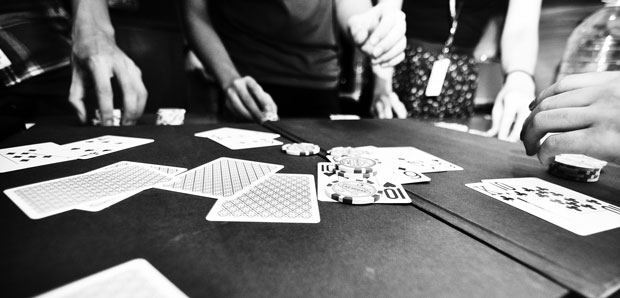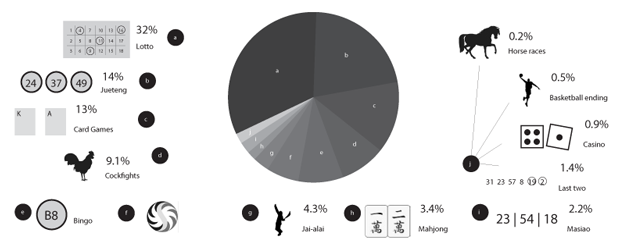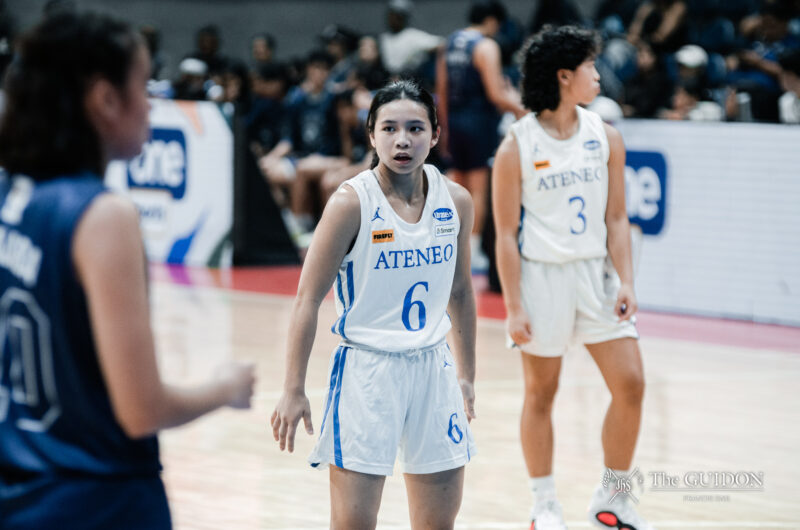Every year, the month of October breaks the monotony of campus life and brings about much excitement and anticipation among Ateneans. During breaks, the more athletically inclined students rush to the nearest computer to check scores online. During class, students whip out their phones every so often to get a peek of the outcomes of games.
As this yearly frenzy shows, many Ateneans follow NBA games with a passion that can only be called religious, and there are many reasons why anyone would enjoy watching the sport. There are those who enjoy watching greats like Michael Jordan carve their name into history, while some would cherish the games as something they could look back at with fond memories.
For a few, more adventurous students, though, these basketball games present a chance to make an awful lot of money.
Thrills of the risk
There is such a thing as beginner’s luck. People new to this game miraculously win their first time, instantly turning their initial principal into something bigger.
The more levelheaded among the neophyte winners would perhaps readily see the arbitrariness of the game—a stroke of luck, indeed. For others, though, a lucky start would be convincing enough for another try. For them, it’s an incredibly tempting picture—an unlimited number of chances to win some easy money.
In sports gambling, though, it isn’t always as simple as betting on who wins or who loses, since the probability of each possible outcome is hardly ever fifty-fifty.
Student-gambler Mark* explains how it goes. The bookie, or the person who takes bets, first identifies the underdog and the favorite among the two competing teams.
The favorite team has to win by a specified number of points, x, in order for the people who gambled on this team to win, while the underdog team has to either win the game or at least lose by less than x points in order for its own set of bettors to win. This ensures that, even though one team may be clearly better than the other in real life, the two teams have an “equal” chance of providing a “win” for the sports bettors.
All this sounds complicated and demanding—which may actually be one of the reasons why people get hooked to it in the first place.
“I did it ‘cause of the fun and thrill,” Juan* says of his previous involvement in such games. A sophomore in the Ateneo, he says that it’s not really about the money for him. “It was just that I wanted to experience something different ‘cause I had tried so many things already.”
Debt threats
Though the high-stakes gambling scene among the youth has been making the rounds of news outlets for a few years now, it seems that student involvement in the risky activity still lives on.
Six years ago, Jesuit-run Xavier School launched a campaign called “Pera’t Pagkakaibigan, Nawawala sa Pustahan.” The effort was intended to curb student participation in gambling, which seems to have been particularly widespread in that school.
Such widespread cases of gambling among students have died down in recent years, but field research indicates that there is still some student involvement in the activity. The interviewed Atenean student-gamblers prove as much.
On average, a student’s bet ranges from P1,000 to P10,000 per game—and that is only for the low-rollers. According to Rene San Andres, the Loyola Schools Associate Dean for Student Affairs, there have been college students who made bets in the P100,000 range.
Given the huge amount of money involved, San Andres explains that the gamblers have trouble paying up when they lose the bet. “It takes a while for [the losers] to pay [their dues], and it is the interest that kills them,” he says.
The way money dictates the gambling scene paints a picture of exclusivity—that only the elites take part in these games. According to San Andres, though, there have been cases of students from middle class families who placed bets way out of their families’ means.
“There was a student before who came from a simple family and was unfortunate to lose a bet,” San Andres shares. “His father came to me, afraid that they would lose the deed to their home.”
This case was eventually turned over to the police and the NBI.
National pastime
In an opinion piece entitled “A survey on gambling” published in the Philippine Daily Inquirer last October 2, 2010, economist and Social Weather Stations (SWS) President Mahar Mangahas gave a brief overview of Filipinos’ gambling practices.
The data presented came from a May 2005 SWS survey. According to the survey, 53% of all adult Filipinos engage in some form of gambling, defined as any of the following: buying a lotto ticket, gambling at a casino, betting on jueteng, betting in card games, and similar other games.
The most popular game is unsurprisingly the lotto, with 32% of respondents saying they participate in it. Next in popularity is the illegal numbers game jueteng, with 14% admitting to playing it, followed by card games (13%), cockfights (9.1%), and other betting games, in decreasing amount of participants.
Betting on the results of a basketball game was not one of the specified choices in the survey, but it was volunteered as an answer (o.5%). It is less popular than casino games (0.9%), but more popular than off-track betting on horses (another volunteered answer, 0.2%).
Despite the low nationwide rates of sports betting, this is arguably the kind of gambling that has made the most impact on the upper-middle to upper class youth studying in exclusive universities like the Ateneo. This kind of gambling requires a lot of money to begin with, closing off sports betting to the average Filipinos.
Moreover, upper-middle to upper class Filipino students’ potential exposure to gambling is aggravated by the fact that the sports leagues in which their respective schools’ sports teams participate in are opened up to gambling. The concern here is that the amount of money at stake in sports betting has, in recent years, led underground syndicates to be involved in game fixing efforts.
This got so bad at one point that back in 2009, the UAAP issued a statement saying that the athletics body had “consistently been against game fixing or any other form of cheating in holding basketball competitions.”
“Calculated risk”
“Gambling is not wrong,” Rafael* says boldly. “It’s just a calculated risk, like any other business.”
Indeed, the money used in business ventures always end up in one of two ways, just like in gambling—either it yields a profit, or it turns out to be a waste. Gamblers would argue that whatever they decide to do with their money is entirely up to them.
But this is a mindset that San Andres seems all too familiar with. “Narcissistic icons such as Paris Hilton are part of the cause of these problems,” he says, explaining how media plays a big role in influencing the youth to take these kinds of risks. The reference to the hotel chain heiress builds on his premise that gamblers seem to only care about themselves.
He concedes, though: “Students are too young to fully know what is right in a given situation. So there are also many other factors that probably play a role in this.”
He identifies family as one such factor. “Parental absence is one of the main reasons why [kids] gamble. The students just simply want the attention of their parents and they feel gambling may give them that, or an adequate substitute to it.”
On the other hand, another student-gambler says otherwise; his parents, who played in the casino or bet on the race tracks, were his very models. “My family was into it so after a while, I ended up just picking it up,” he said.
Cultural ambiguity
Abet Go, a psychologist with the Guidance Office, explains that once a student starts gambling, it is difficult to stop. Gamblers become so addicted to the thrill of their betting games that it gives them an emotional high.
“For a student to stop,” he explains, “it has to start from himself. Family and friends can do their best to help him stop, but in the end there has to be will.”
Filipino’s cultural attitudes towards gambling are ambiguous. In terms of actual participation, the SWS survey signifies a split almost right in the very middle. Furthermore, institutions for and against gambling both exist. Schools have strict anti-gambling policies. On the other hand, there are a lot of gambling establishments like the Resorts World Casino, which a number of Ateneans patronize.
The social clues are all conflicting. In the end, though, even with all the anti-gambling campaigns and the alarming stories that surround those who have gambled before, the ball is still solely in the gambler’s hands.
*Names have been changed to protect the individual
With reports from Luther B. Aquino
National gambling statistics
Percentage of survey respondents who have engaged in the following betting games within 12 months prior to the survey:
Based on a Social Weather Stations survey from May 2005








